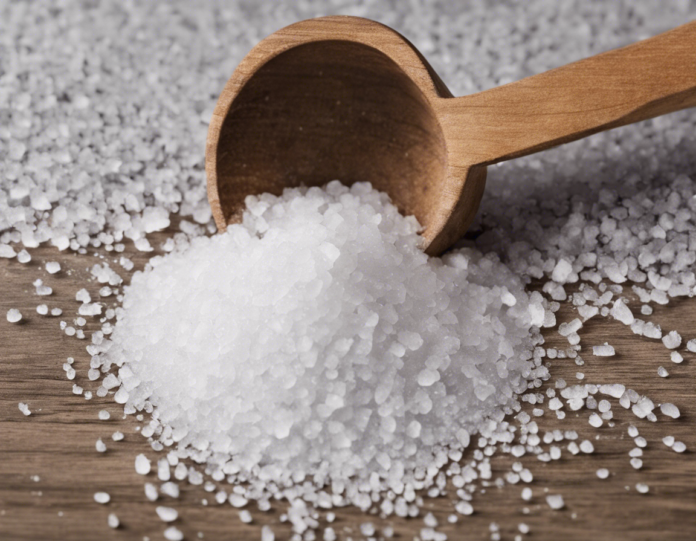Introduction
In the realm of cooking, the phrase “a pinch of salt” is a common instruction found in countless recipes. While it may seem like a mere throwaway line, the act of adding a pinch of salt holds deeper significance in the culinary world. What exactly does it mean to add a pinch of salt to a dish? How does this seemingly small action impact the overall flavor and composition of a meal? In this article, we will delve into the meaning of a pinch of salt, its role in cooking, and how it can elevate your culinary creations to new heights.
Understanding the Role of Salt in Cooking
Salt is a fundamental ingredient in cooking that plays a crucial role in enhancing flavors, balancing sweetness, and masking bitterness. It is renowned for its ability to amplify the natural taste of ingredients and bring a dish together harmoniously. In the context of a pinch of salt, a small amount is all that is needed to make a significant difference in the final outcome of a recipe.
The Science Behind Salt
Salt, chemically known as sodium chloride, consists of sodium and chloride ions that work together to enhance flavors through a process called ion exchange. When salt is added to a dish, it dissolves into the liquid component and disperses evenly, allowing the sodium ions to interact with the taste receptors on our tongues. This interaction not only enhances the perception of flavors but also helps to suppress any bitterness present in the dish.
Enhancing Flavor Profiles
The addition of a pinch of salt can transform a bland or lackluster dish into a culinary masterpiece. Salt is known for its ability to elevate and intensify the natural flavors of ingredients, making them more pronounced and enjoyable to the palate. By enhancing the savory, sweet, sour, and umami notes in a dish, salt helps to create a well-rounded and balanced flavor profile that is pleasing to the senses.
Balancing Sweetness and Masking Bitterness
In addition to enhancing flavors, salt plays a crucial role in balancing sweetness and masking bitterness in a dish. When used in moderation, salt can counteract the cloying effects of excessive sweetness, allowing other flavors to shine through. Similarly, salt can help to mask the bitterness of certain ingredients, such as coffee or dark chocolate, making them more palatable and enjoyable.
Tips for Using Salt in Cooking
- Use Kosher or Sea Salt: Opt for kosher or sea salt when cooking, as these varieties have a cleaner and more nuanced flavor compared to table salt.
- Season Throughout the Cooking Process: Add salt in small increments throughout the cooking process to layer flavors and ensure a well-balanced dish.
- Taste as You Go: Regularly taste your dishes as you cook and adjust the salt levels accordingly to achieve the perfect balance of flavors.
- Finish with a Pinch of Salt: Sprinkle a pinch of salt over your finished dish just before serving to enhance the flavors and provide a final touch of seasoning.
The Art of Seasoning
Seasoning, or the process of adding salt and other flavorings to a dish, is a fundamental skill in cooking that can elevate even the simplest of recipes. Mastering the art of seasoning involves understanding the impact of salt on flavors, experimenting with different types of salt, and developing a discerning palate that can distinguish between well-seasoned and under-seasoned dishes.
FAQs about Adding a Pinch of Salt
-
Why is salt important in cooking?
- Salt enhances flavors, balances sweetness, and masks bitterness in dishes.
-
How much is a pinch of salt?
- A pinch of salt is roughly equivalent to 1/16 teaspoon, or a small amount held between your fingertips.
-
Can I substitute different types of salt in recipes?
- Yes, you can substitute different types of salt, but be mindful of the saltiness levels and adjust accordingly.
-
Is it possible to oversalt a dish?
- Yes, it is possible to oversalt a dish, which can overpower other flavors and make the dish unpalatable.
-
What are the health implications of consuming too much salt?
- Consuming excessive amounts of salt can lead to high blood pressure and other health issues, so it is essential to moderate salt intake.
In conclusion, the phrase “a pinch of salt” holds a profound significance in the world of cooking, symbolizing the art of seasoning and the transformative power of a seemingly small ingredient. By understanding the role of salt in enhancing flavors, balancing tastes, and creating well-rounded dishes, you can unlock a new level of culinary creativity and gastronomic enjoyment in your kitchen. So, the next time you come across the instruction to add a pinch of salt in a recipe, remember the impact that this small gesture can have on the final outcome and savor the flavorful difference it makes.




